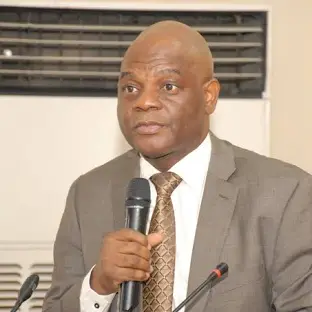…Zulum Cries for Urgent Military Help
In a deeply troubling turn of events, Boko Haram insurgents have launched a renewed wave of terror across Nigeria’s North-East, reclaiming territories once declared “liberated” and dealing a harsh blow to the federal government’s narrative of victory over terrorism. Coordinated attacks on military bases, strategic towns such as Marte and Dikwa, and vulnerable civilian populations have reignited fears of a full-scale resurgence of the group that has plagued the region for over a decade. Hussaini Kafi in Kano tells the story.
This is not merely a regional crisis; it is a stark referendum on Nigeria’s national security architecture and the federal government’s capacity to safeguard its citizens.
Boko Haram’s Violent Comeback

Investigations by Africa Health Report, AHR, reveal a worrying pattern of intensified attacks by Boko Haram in Borno State over recent weeks. The insurgents have repeatedly overrun military formations in hard-hit areas like Marte, Dikwa, and Kala-Balge. These attacks have included looting of military weapons, destruction of communication infrastructure, and seizure of vital rural communities, exposing critical weaknesses in the military’s hold on the region.
What is even more chilling is the audacity and sophistication of the terrorists’ tactics. Eyewitnesses and local vigilantes report that Boko Haram fighters now move in convoys and, alarmingly, employ drone surveillance technology — a capability once believed to be far beyond their reach.
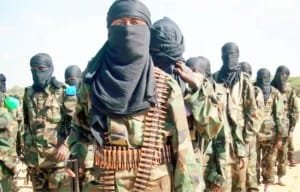
Marte in particular, a town resettled by government efforts years ago, more than 20,000 residents have been displaced once again in just a matter of days. Most have fled to makeshift camps in Dikwa, creating a dire humanitarian emergency that risks spiraling out of control.
Journalist Jonathan Nda-Isaiah aptly described the situation: “Five soldiers were killed in Marte, equipment destroyed, commanding officers’ vehicles stolen. New motorbikes meant to secure communities are now in the hands of murderers. If this isn’t a national embarrassment, then what is?”
Governor Zulum’s Bold Outcry
Leading the fight against the insurgency on the ground, Governor Babagana Umara Zulum has raised urgent alarm bells about the deteriorating security situation in Borno. Following the latest assault on Marte, Zulum painted a bleak but honest picture.
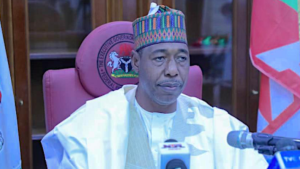
“Marte was resettled about four years ago, but unfortunately, over the last three days, it was ransacked and displaced again. About 20,000 people left Marte for Dikwa,” the governor said, highlighting the enormous displacement challenge. “This huge number is a threat because keeping them in camps could make the younger ones vulnerable to recruitment by the insurgents.”
Zulum further warned that only one community remains functional in Marte Local Government Area, stressing, “If we cannot maintain this one, then we will lose the entire LGA to the insurgents. That would be a tragic setback.”
According to AHR findings, the governor has personally visited at least nine conflict-affected communities in the last month alone — including Kala-Balge, Wulgo, Ngala, Lugumani, Gajibo, Koibe, Dikwa, Ajiri, and Marte. During these visits, Zulum has been distributing aid, assessing security conditions, and spearheading vital rebuilding projects like a 100-bed hospital and a new market in Dikwa.
His efforts are not limited to physical reconstruction; Zulum has issued a state-wide call for fasting and prayer, crossing religious divides in an urgent appeal for divine intervention, while warning the public against any form of collusion with insurgents, whom he described as “our collective enemy.”
A Federal Government Under Scrutiny
Under Nigeria’s 1999 Constitution, the president is the chief security officer of the federation, entrusted with the safety of all Nigerians. However, President Bola Ahmed Tinubu’s administration has faced mounting criticism for a slow and reactive approach to the escalating crisis in the North-East.

Repeated security alerts from Borno State were reportedly overlooked until Governor Zulum’s public pleas forced the issue into the national spotlight. By the time federal troops were finally deployed in significant numbers, the insurgents had already gained ground.
Security analyst Dr. Yakubu Abdullahi remarked, “The Constitution is clear: the security and welfare of the people shall be the primary purpose of government. Normalizing the existence of ungoverned spaces where terrorists roam freely is unacceptable.”
Though Zulum expressed gratitude for federal reinforcements, he cautioned against complacency: “Without their support, we could have done little. But if troops withdraw prematurely, we risk losing these areas permanently.”
Vice President Shettima: Advocate or Bystander?
Vice President Kashim Shettima, a former governor of Borno and a native of the region, occupies a unique and influential position. Expectations are high that he would leverage his federal role to champion stronger support and swift action to end the insurgency.
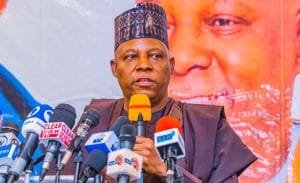
While Shettima has participated in multiple closed-door security briefings and advocated for more robust intervention, critics argue that his efforts have yet to translate into tangible results on the ground.
Political analyst Fatima Lawan opined, “Shettima must do more than attend meetings. His state is bleeding. Nigerians expect him to be a powerful voice within the presidency demanding urgent action and accountability.”
Territories Still Under Terrorist Control
Despite over a decade of military campaigns and billions of naira spent on defense, Boko Haram continues to maintain control or influence over vast swaths of territory. AHR investigations confirm that communities in Abadam, Guzamala, Kukawa, Kala-Balge, and parts of Marte remain under the de facto rule of insurgents.
“They impose taxes, enforce curfews, punish infractions, and even conduct marriages,” a displaced community leader from Abadam revealed to AHR. “They don’t hide in the forest. They run parallel governments.”
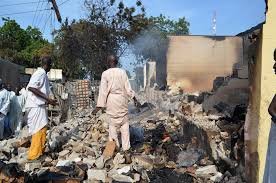
This reality directly contradicts military claims of “technical defeat” of Boko Haram, underscoring a dangerous gap between official narratives and on-the-ground realities.
Jonathan Nda-Isaiah bluntly stated, “The truth nobody wants to hear is that we never defeated Boko Haram. We merely pushed them into hiding. The military celebrated prematurely, politicians took credit for non-existent victories, and now innocent Nigerians pay with their blood.”
Zulum’s Multi-Pronged Counter Strategy
Governor Zulum’s response combines humanitarian relief, security collaboration, and community rebuilding. He has advocated for expanded recruitment of local defenders into the Civilian Joint Task Force (CJTF), vigilantes, and hunters, and lobbied for sustained federal troop presence in reclaimed areas.
“We cannot give these terrorists even an inch of ground,” he declared publicly. “Every retreat emboldens them.”
The governor’s administration is simultaneously focused on rebuilding schools, clinics, and housing destroyed in the conflict. However, experts warn that physical infrastructure alone will not solve the insurgency.
Counterinsurgency expert Dr. Fatima Akilu explains, “Insurgency thrives in vacuums — not only of governance but intelligence and willpower. We see all three missing in parts of the North-East. Unless we address the psychological trauma in these communities, we’re only postponing the crisis.”
A National Security Crisis
The North-East is not the only region suffering from escalating insecurity. In the North-West, bandits have intensified attacks, with mass kidnappings and village burnings becoming tragically routine. Zamfara State alone witnessed over 200 abductions in one constituency recently.
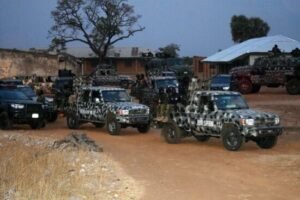
Federal lawmaker Aminu Sani Jaji recounted harrowing scenes: “In Banga, 60 people were kidnapped. In Gabake, 25. Ten were killed because ransom couldn’t be paid. This is no longer insurgency — this is national collapse.”
Meanwhile, the Middle Belt region continues to endure violent attacks from killer herdsmen, with over 200 lives lost recently in Benue, Plateau, and Kwara states.
Nda-Isaiah concluded, “This is not about politics. It’s about our collective failure to prioritize security. Throwing money at the problem without sustainable solutions only delays the inevitable.”
The Way Forward: A Holistic Security Approach
Experts and community leaders alike call for a comprehensive reassessment of Nigeria’s security strategy. The path to lasting peace must include several urgent priorities:
First, the government must provide honest and transparent security assessments. The public deserves truth, not sugar-coated reports that mask the severity of the threat.
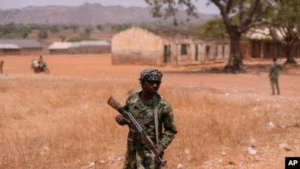
Second, Nigeria must secure its porous northern borders. These remain conduits for weapons, fighters, and insurgent reinforcements from Sahelian countries. Without coordinated multinational border control and intelligence sharing, the flow will continue unchecked.
Third, substantial investment in intelligence gathering and surveillance is critical. How Boko Haram acquired drones and advanced technology under the watch of security agencies remains a painful mystery. Enhanced human intelligence (HUMINT) and technological capabilities like drones and satellites must be prioritized.
Fourth, soldiers on the frontline must be adequately equipped, supported, and motivated. Retreating troops are not cowards; they are often under-resourced and overstretched in hostile terrain.
Finally, the government and society must end ethnic and religious framing of the insurgency. Terrorism is neither regional nor sectarian; it is a Nigerian problem that requires Nigerian unity and collective resolve.
Conclusion: Nigeria at a Crossroads
Governor Zulum’s consistent, hands-on leadership offers a model for confronting the insurgency. Yet the burden is too heavy for one state to bear alone. The federal government must urgently match Zulum’s energy, clarity, and moral courage with decisive action.
Retired military General Aliyu Mohammed warned, “Every square inch of Nigeria must be under the control of the state. Losing even one local government to terrorists means the state has failed its constitutional mandate.”
As Borno bleeds, the rest of Nigeria watches. Whether the government chooses decisive leadership or settles for delayed deployments and press conferences will define not only this administration’s legacy but the very future of the nation.


